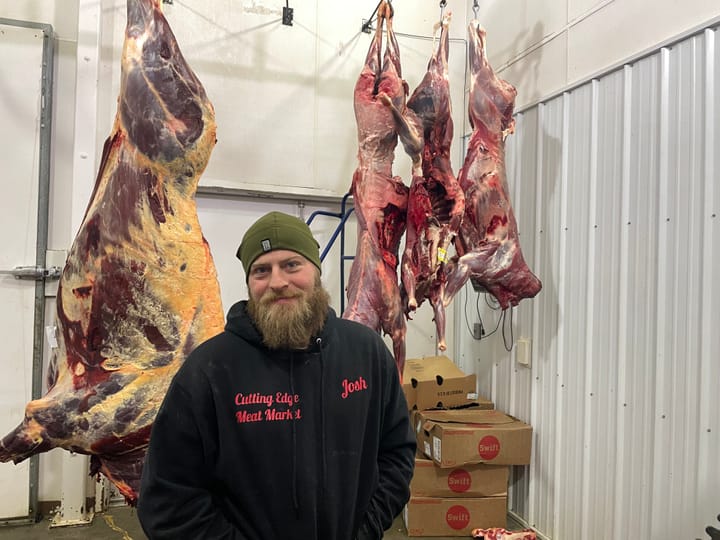Opera on the prairie? University of South Dakota program raises its voice
Traceyln Gesteland arrived in Vermillion in 2008 with doubts about whether opera could thrive on the prairie. Now she knows that the show will go on.
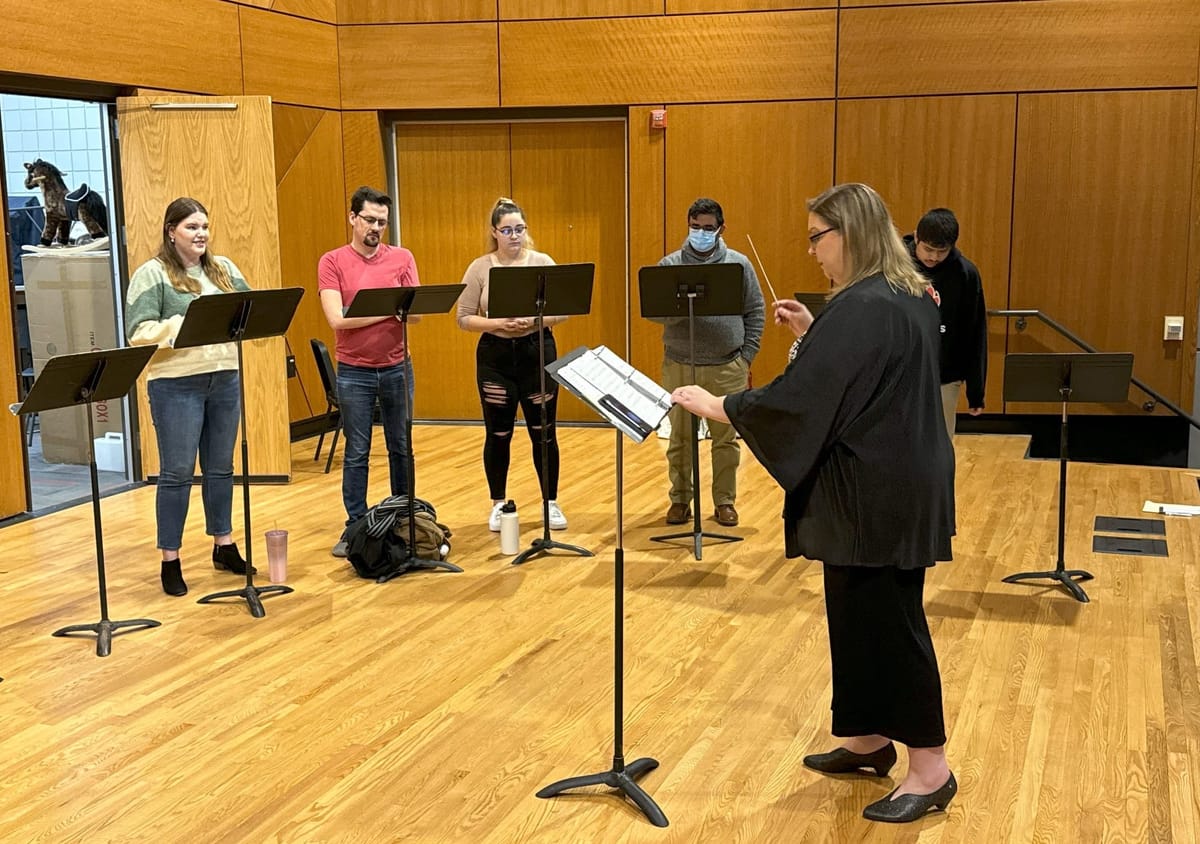
VERMILLION, S.D. – Tracelyn Gesteland was an ambitious opera teacher and vocalist when she arrived at the University of South Dakota in 2008, firmly aware of the irony of her entrance.
If she was going to make her mark in perhaps the most metropolitan and exclusive of the cultural performing arts, why was she in the heart of the Great Plains, with not an opera set in sight?
“I had come from Chicago and Houston, which had very vibrant arts scenes,” said Gesteland, a professor of voice and opera at USD. “I had my doubts, to be honest, about whether I would stay here long.”
Fast forward to early spring of 2024, and Gesteland is on stage at the Colton Recital Hall on the Vermillion campus, surrounded by a half-circle of students from Upper Midwest locales.
They’re running through the first act of “Notes on Viardot,” an original production commissioned for the USD Opera that will premiere April 27-28 at Aalfs Auditorium, the on-campus performing arts center.
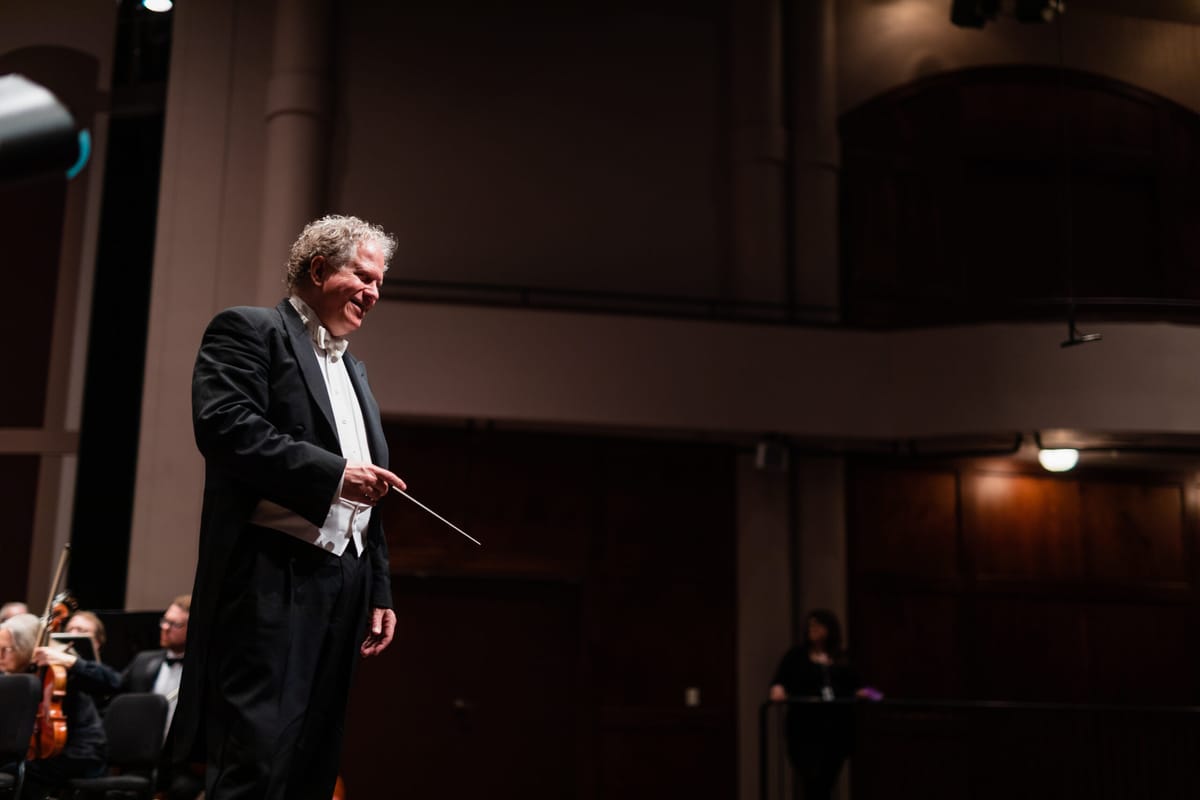
The practice session is not a dress rehearsal. The performers are in the casual attire of college students, poised to trudge across campus to their next class.
But to an outside observer, it’s a remarkable scene.
The students’ voices soar and subside to Gesteland’s baton and an accompanying piano, their eyes betraying nervousness at times and triumph at others. The magnitude of the music drowns out mundane moments that await outside the wood-paneled walls.
It’s a familiar feeling for Elisabeth Peirce, a senior vocal performance and music education major from Elk Point who plays the role of the reporter in the production.
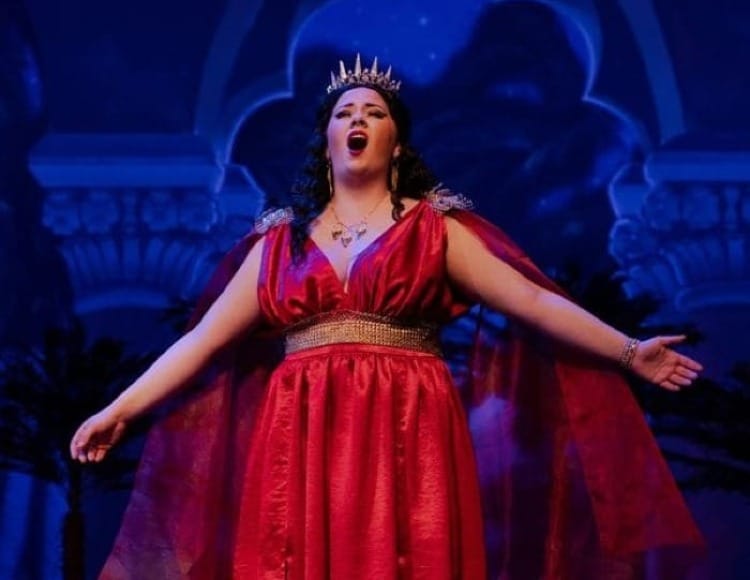
She knew nothing about opera when she enrolled at USD but was persuaded to try it as a freshman in 2020. In the spring of 2021, due to the COVID-19 pandemic, the opera program did outdoor pop-up concerts in surrounding communities, performing duets and arias (solos) from composers such as Mozart and Puccini.
“I was sitting at one of those concerts listening to someone’s aria, and I remember a light bulb coming on as the music continued,” said Pierce. “It was a defining moment for me. I sort of decided, ‘Yep, this is it. This is what I want right here.’”
'The music gave me chills'
The woman behind the rise of USD opera hails from another largely rural state, Wisconsin, where operatic classics such as “The Barber of Seville” and “The Magic Flute” seemed as accessible as Vienna to Vermillion.
A trained vocalist and stage performer, Gesteland didn’t encounter opera until her late 20s, when she pursued a master’s degree in vocal performance at Roosevelt University in Chicago.
At that stage, there was no hint of a future that would include lead roles with the Houston Grand Opera and solo turns from Handel’s “Messiah” with the South Dakota Symphony Orchestra.
She felt like she had missed her moment.
“I had already passed the age limit for a lot of young artist programs and competitions, so I wished I had been exposed during my undergraduate years,” said Gesteland. “I knew then that exposure at the college level is important, so kids don’t feel like they missed out.”
Early adult years coincide with the maturation of voice muscles, allowing for choral singers to explore new registers and grow into sopranos and tenors, with acting skills a bonus.
Gesteland found her range as a mezzo-soprano – between higher soprano and lower contralto – after joining the Chicago Opera Singers’ acting project. The turning point came in 2002 when she performed a scene from the comic opera "Der Rosenkavalier" by German composer Richard Strauss.

“It was magical and seductive in the way that the mezzo and soprano lines were interwoven, illustrating the characters’ burgeoning love affair,” said Gesteland, who played the lead role of Octavian. “The music gave me chills the first time I heard it. It felt like I had arrived as an artist.”
USD making opera more accessible
Gesteland continued performing after moving to Texas to pursue her doctorate in musical arts and vocal performance at the University of Houston.
By the time she earned her degree in 2007 and started teaching at USD, she determined that her talents could be utilized not only to brighten her own future but to make opera accessible to those not held in its sway.
“When I first got here, we didn’t really have an opera program,” said Gesteland. “We had a one-semester scenes program done with basically whatever we could find in the fine arts building in the way of costumes, accessories, tables and chairs.”
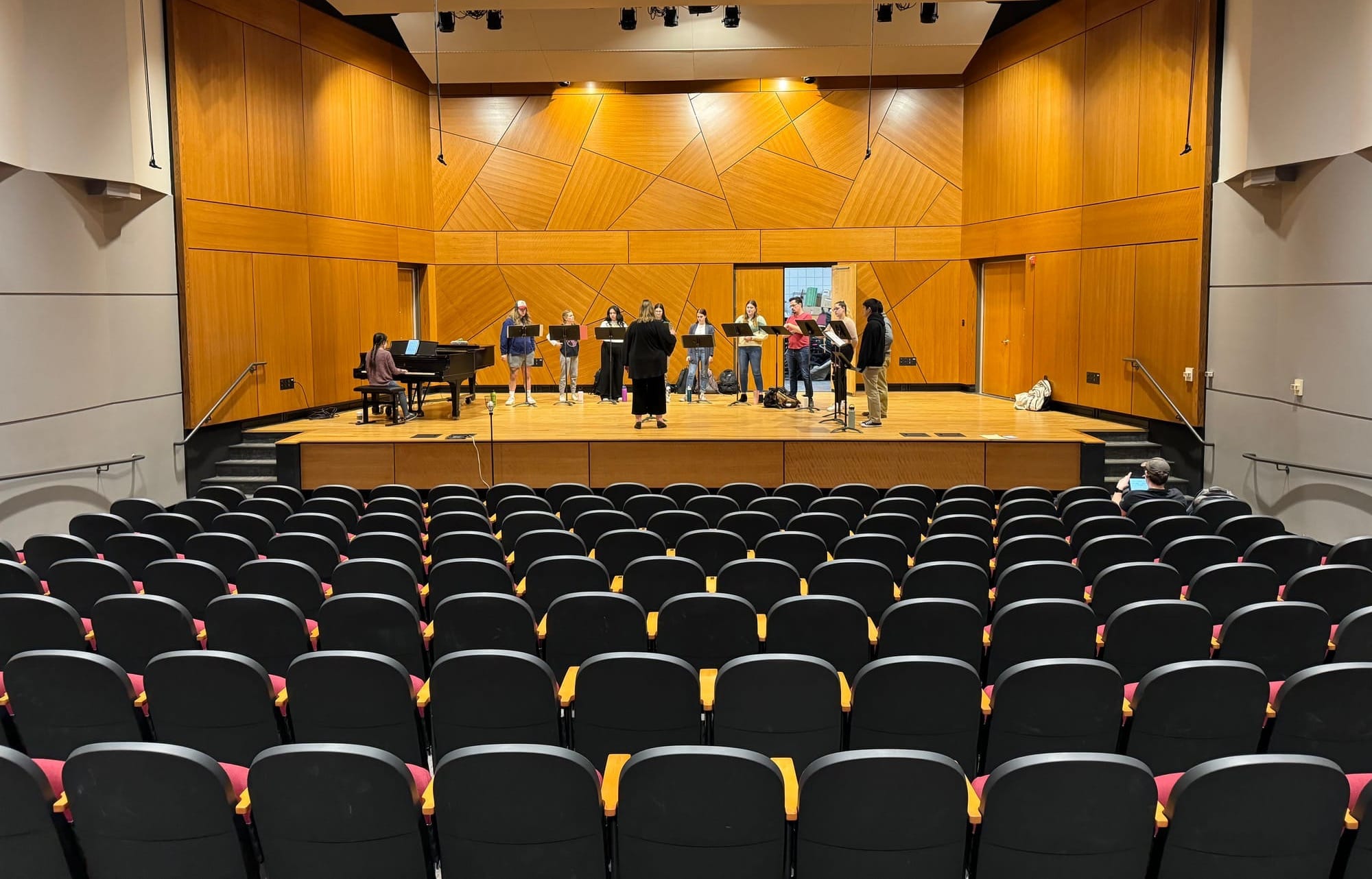
They started doing outreach to schools and community centers, building opera awareness in an area of the country where vocal productions are generally limited to musicals or chorus.
It was an effort to show administrators that more interest in opera meant more understanding of the genre, and potentially more students in the university’s music programs.
“Our biggest challenge is that people hear the word opera and they think, ‘That’s something elitist. That's in other languages. I don't understand it. It's too long,’” said Gesteland. “But there are all sorts of styles of opera. We do the majority of ours in English. We’re not putting on Wagner at the University of South Dakota with the woman in a horned helmet. We want people to come experience it.”
South Dakota's only fully fledged opera program
Progress came with the re-opening of USD’s 1,300-seat performing arts center at Slagle Hall in 2011. It was christened Aalfs Auditorium after $8.2 million in renovations that included lighting upgrades, better acoustics and new stage floors.
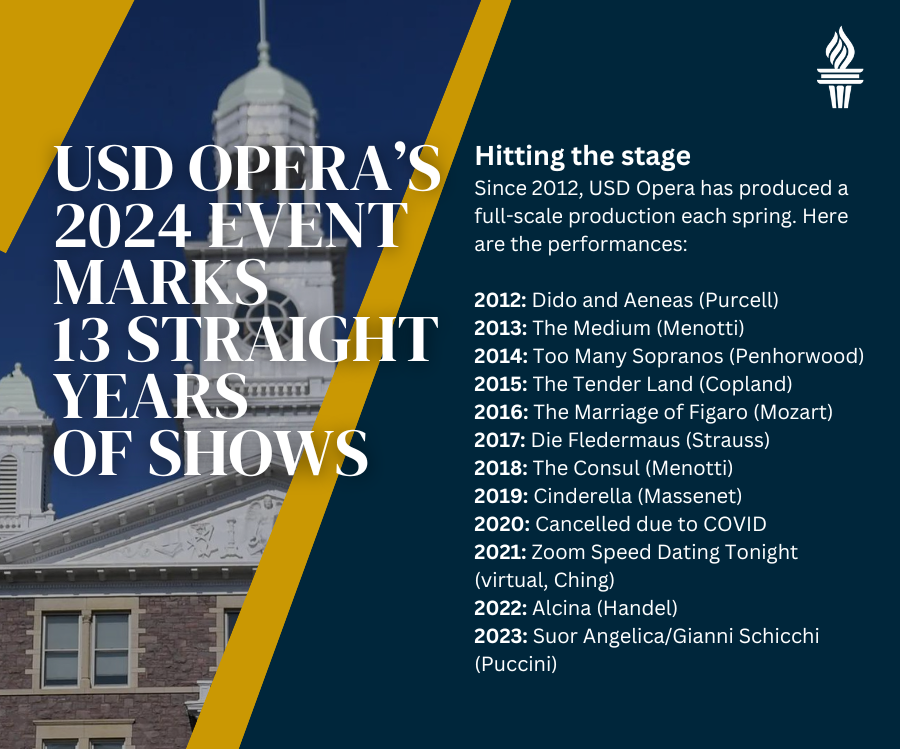
When Gesteland and her students put on a production of “Dido and Aeneas” by Henry Purcell in the spring of 2012 that earned recognition from the National Opera Association, momentum started to build.
Also instrumental was the formation of Friends of USD Opera, a fundraising and promotional group consisting of community members and program alumni.
The result was the only fully fledged opera program at a South Dakota university, with a minimum of two productions each year. The schedule begins with a children's opera, one-act or scenes program in the fall and the Friends of USD Opera Gala each January, a fundraiser that includes a performance element.
Then comes the spring production, a full-scale opera with orchestra that celebrates the works of composers such as Handel, Puccini and Strauss. Gesteland utilizes students, faculty, alumni and every resource available to reach the final curtain.
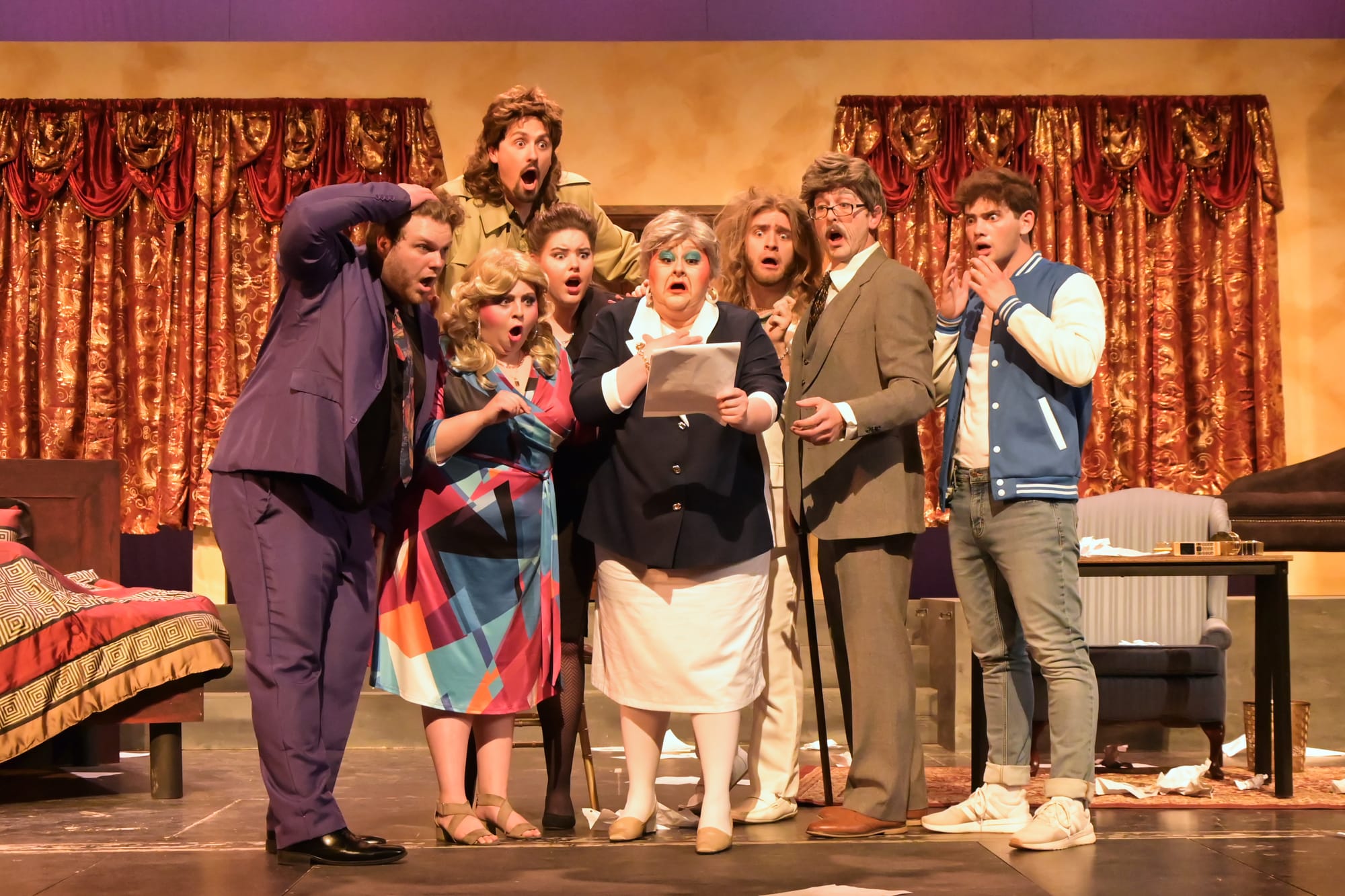
“She moves mountains,” said former student Marlise Ahuna, who lives in Hawaii but will return to USD for the "Notes on Viardot" premiere. "These productions are huge and she’s limited by so many factors, but she just puts her head down and makes it happen. She gets the best out of all of us.”
Spending time in the spotlight
Several thousand miles separated Ahuna and USD Opera in 2015, when she started searching colleges online from the island of Oahu. Her husband was amidst a career change and seeking a graduate degree in speech science, and USD's programs fit.
Ahuna, a mother of four and also a soprano who sang with the chorus of the Hawaii Opera Theatre in Honolulu, encouraged him to apply. As for her own aspirations to continue a vocal career in Vermillion, she had low expectations.
“I just assumed there would be nothing for me,” said Ahuna. “I was in my late 30s with four kids ranging in age from fifth grade to (newborn), and it was a crazy situation. But the faculty helped connect me with a graduate teaching assistantship that helped me start my master’s program.”
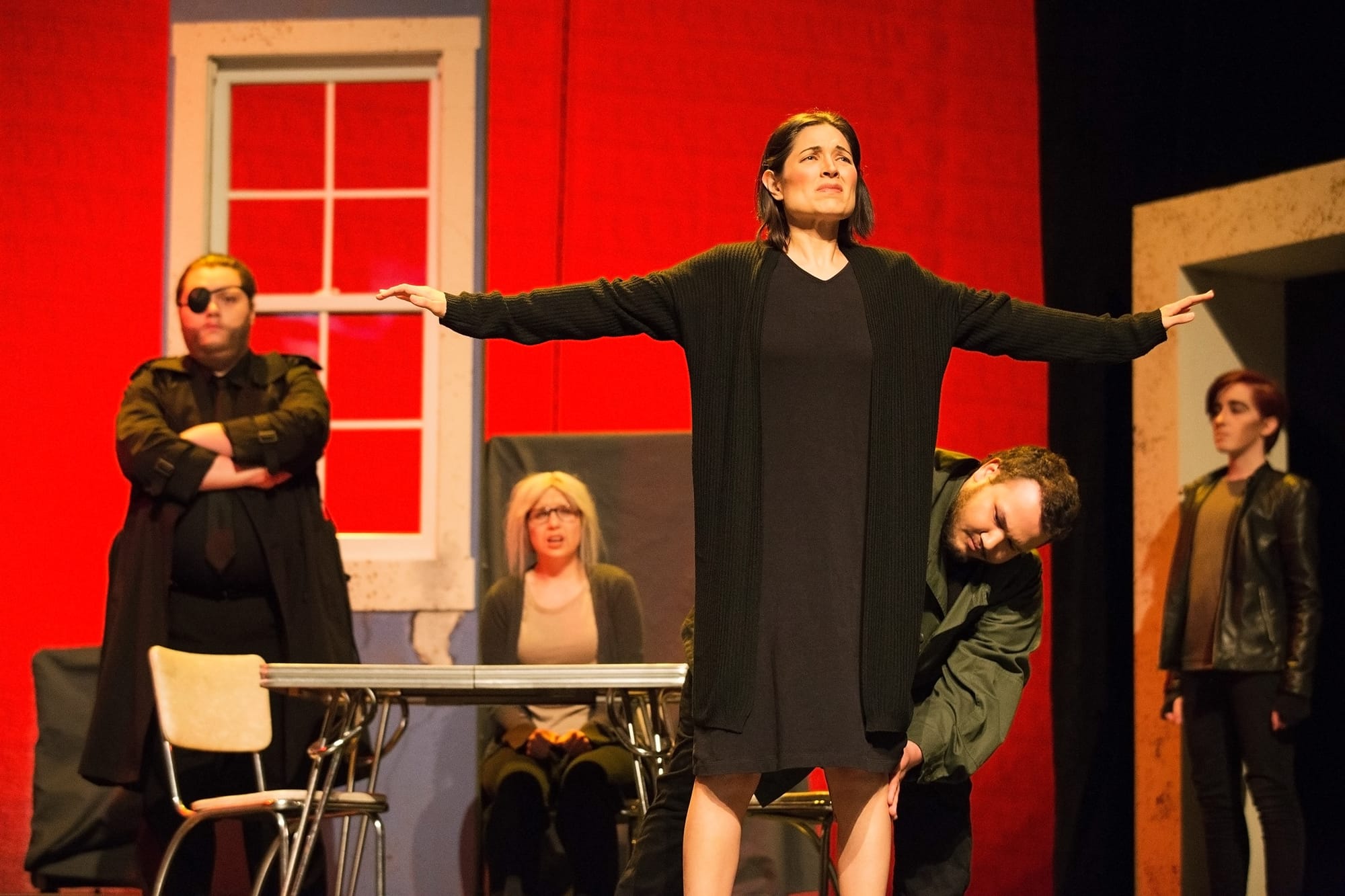
She started giving vocal lessons to students and shifted to helping with the opera program. Gesteland discovered that Ahuna could not only sing but act.
That led to a lead role as Rosalinde in "Die Fledermaus," an operetta that allowed Ahuna to do something that she had not experienced with most productions in Hawaii.
She got to be in the spotlight.
“The principals for shows at the Hawaii Opera Theatre were booked years in advance, usually out of New York City, so locals didn’t get an opportunity to be in those kinds of roles,” Ahuna said. “That’s a major draw for USD that people get those opportunities. It’s a lot of work and a lot of pressure to feel like you’re carrying a major part of the opera, but it’s worth it.”
New production 'not without risk'
Ahuna starred in another spring production, “The Consul,” in 2018 before earning her master’s degree in vocal performance and returning to Hawaii with her family.
They live near Hilo on the Big Island, where she owns a voice studio and directs a community children’s choir while also teaching performing arts part-time at an elementary school.
During the pandemic, when Gesteland and her students performed an online opera called “Zoom Speed Dating Tonight,” Ahuna agreed to participate.
The opera was written by Michael Ching, an Ames, Iowa-based composer who serves with Gesteland on the board of the National Opera Association. Ching customized the speed dating production for USD by adding local flavor, such as a song about chislic.
“I’m a huge believer in opera being an art form that works anywhere,” said Ching, 65, a native of Hawaii known for his contemporary themes. “The early part of my career was spent in large markets featuring opera singers like Luciano Pavarotti, but I didn't find it artistically fulfilling. I’m more interested in helping opera fit into the American cultural context.”
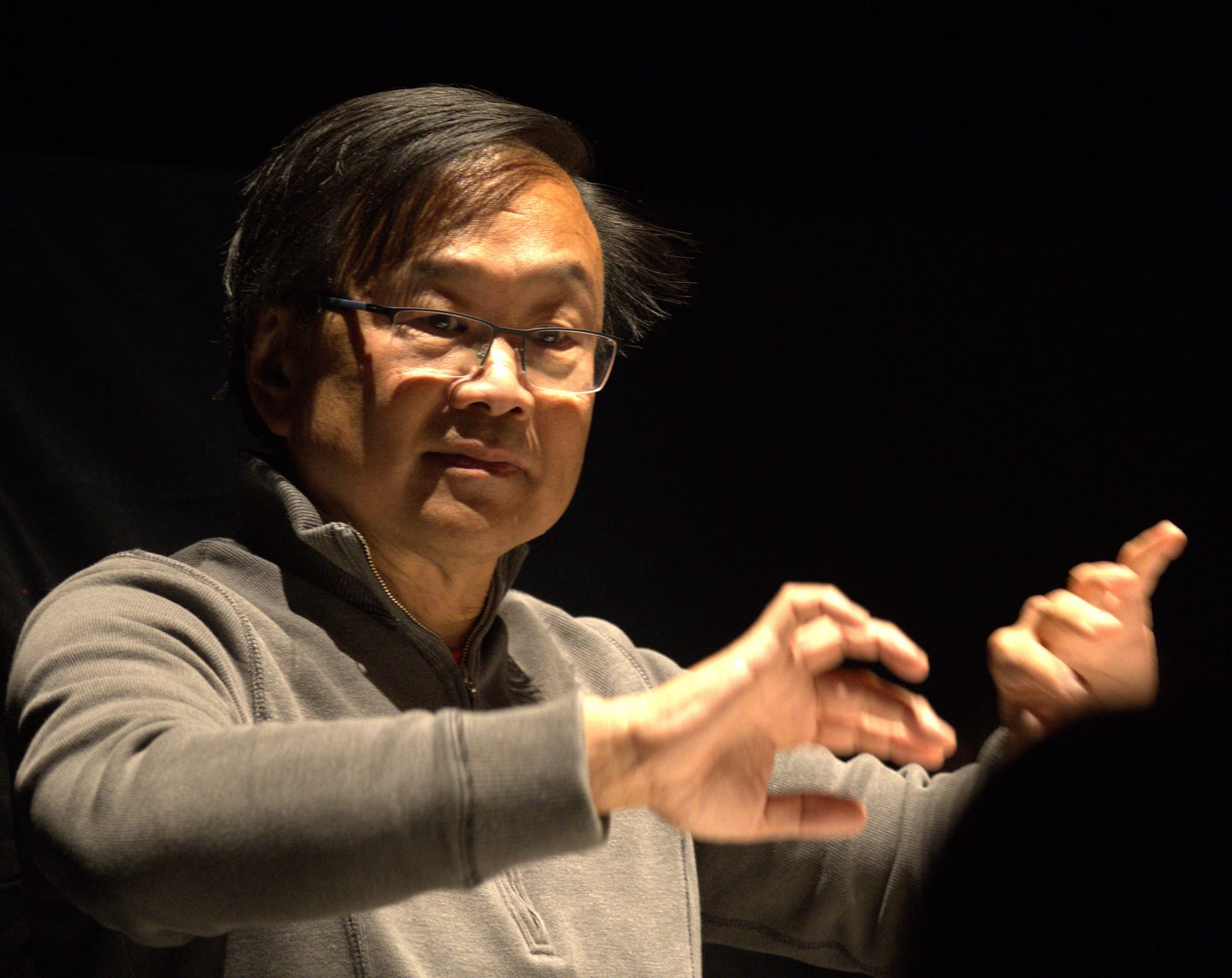
The online production was successful enough for Gesteland and USD to commission an original work from Ching based on the life of Pauline Viardot, a 19th century French opera singer known for highly dramatic roles.
When Gesteland contacted Ahuna about returning to Vermillion to play the role of the mature Pauline, the former student didn’t hesitate, despite logistical and geographic challenges.
She’s been rehearsing in Hawaii and will arrive about six days before the curtain rises, ready for a whirlwind week. Ching will conduct the three-act performance, which he sees as a daunting but necessary step in the evolution of USD Opera.

“Doing a new work is a challenge for any kind of institution, even a professional company or a university,” said Ching. "It's very ambitious and not without risk to be attempting something like this, but I think they’ll respond well.”
USD Opera program a 'well-kept secret'
Back at Colton Recital Hall on the USD campus, Brian Shirley takes a break from rehearsal. The senior from Rapid City is playing the role of Ivan Turgenev, who was Pauline Viardot’s lover and lived with her and her older husband.
“It gets a little complicated,” Shirley said with a grin.
His long hair is corralled by a baseball cap, and his sweatshirt and shorts seem incongruous to the lyrical tenor he unleashes on stage, extending his experience as a high school choral performer.
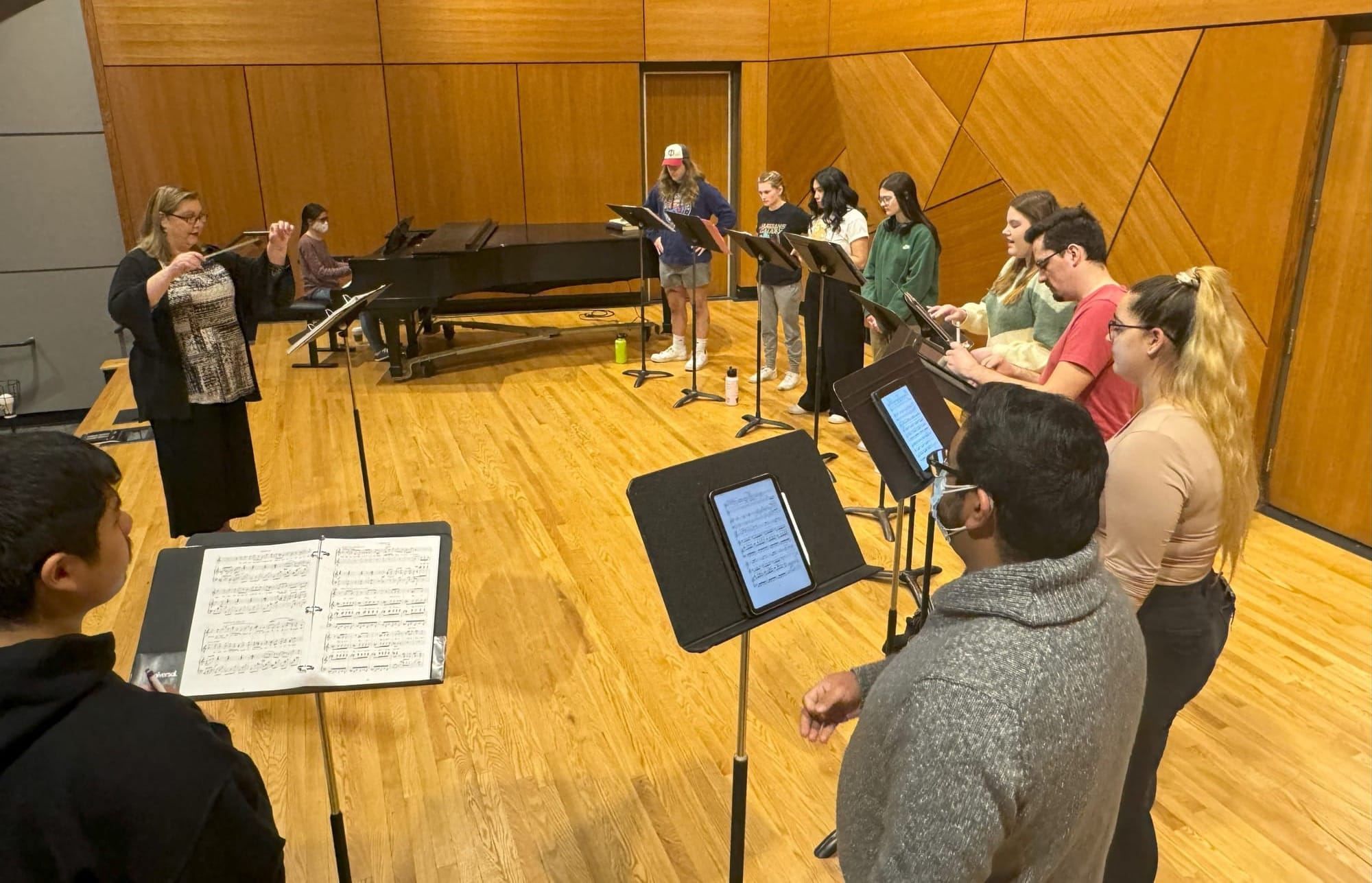
"Singing in an ensemble is about flexibility and blending together," said Shirley. "Whereas in opera, everyone's a soloistic voice. Everyone's out there — I don't want to say showing off — but definitely trying to put their biggest and best voice out there to the audience and singing over an orchestra.
"It's a different animal."
Shirley is studying musical arts but also majoring in marketing, a nod to real-life responsibilities outside the concert hall. He’s not sure if he can make a living on stage, but it might allow him to see the world.
USD Opera has placed students in young artists programs in Germany, Italy and Austria. The school's opera performers have also earned professional apprenticeships, graduate scholarships and even a Latin Grammy Award nomination.
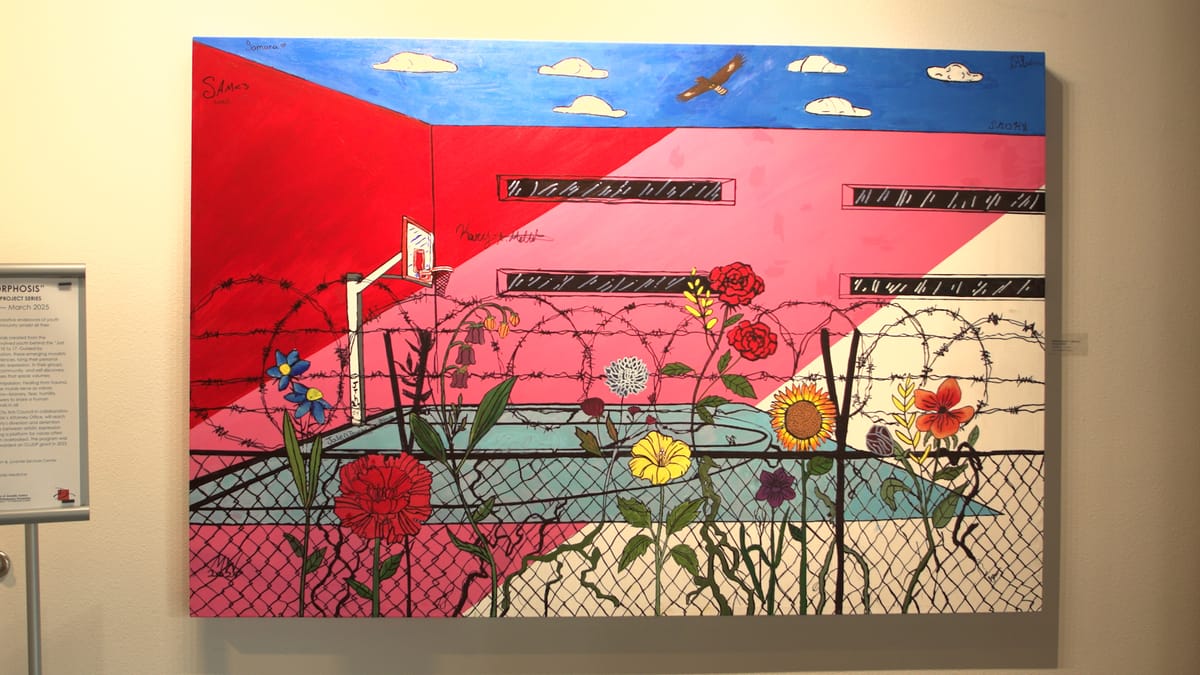
Does that mean people on the prairie are paying attention? It’s hard to say. Gesteland likes to call the school’s opera program a “well-kept secret,” but Shirley has evidence to the contrary.
His favorite moment was the start of Handel's “Alcina” in 2022, on the other side of the pandemic, when the curtain opened and voices took flight.
"The auditorium was more full than I’d ever seen it," said Shirley. "Just seeing the scale of the production behind you and being in the company of top-level musicians, that’s when you sort of take stock and realize, 'This is happening. I'm part of something big here.'"
Contact Stu Whitney at stu.whitney@sdnewswatch.org



